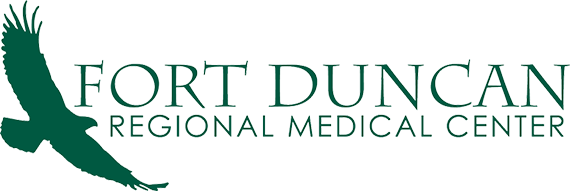Diagnosing and Treating Heart Disease
Cardiac catheterization is a procedure used to help diagnose and treat a wide range of heart conditions, including heart attack.
During a cardiac catheterization, the physician threads a thin, flexible tube called a catheter through a blood vessel in your arm, groin or neck and into your heart. Using X-rays, the doctor looks for signs of heart disease and fat and calcium deposits that may narrow the openings in the arteries.
The new cardiac cath lab at Fort Duncan Regional Medical Center features advanced equipment and software and provides treatment capabilities previously only available in San Antonio. The lab staff is prepared to perform cardiac catheterizations in minutes during an emergency. For critical or acute patients, the goal is to meet the national standard of 90-minute door-to-balloon time to open blocked arteries.
In addition to cardiac catheterization, staff in the new lab can also provide a wide range of other services, including:
Stress test
A stress test can help determine how well your heart handles exertion. A stress test shows if you have an irregular heartbeat, if symptoms like chest pain or difficulty breathing are related to your heart, how challenging your workouts should be, if any previous treatments for heart disease are working or to determine if you need additional tests like an angiogram.
For the test, you’ll walk on a treadmill while hooked up to equipment that monitors your heart. You may also be asked to breathe into a special mouthpiece. Medical staff will be there to monitor you throughout the test, and you may stop the test at any time if you feel unwell.
Cardiac nuclear medicine
A nuclear medicine scan produces images of the heart during exercise and at rest. The test shows how well the blood flows into the heart. For the test, you'll be injected with a small dose of a harmless tracer that a special camera can detect as it passes through the chambers of the heart. You'll then spend some time exercising on a treadmill before resting. The images of the heart during exercise and at rest are then compared, which can reveal issues in the heart muscle and blood vessels, including coronary artery disease.
Echocardiogram/cardiac echo
An echocardiogram, or a cardiac echo, is similar to an ultrasound. This painless test uses sound waves to produce images of the heart. A cardiac echo helps diagnose how well your heart moves, its pumping strength, if the valves are working correctly or if there are clots or abnormal holes within your heart. During the test, a technician places electrodes on your chest, then applies gel and moves an ultrasound wand over your chest to take images of the heart.
Other procedures
The staff of the new cardiac cath lab can also complete many other procedures, such as: angiography (X-ray imaging of the heart and vascular system), placing stents to open blocked arteries, implanting pacemakers, interventional radiology, lower extremity interventions for patients with poor circulation in their legs and feet, and placing filters to prevent deep vein thromboses.
Find a Doctor for Heart Care
If you need a referral to a physician at Fort Duncan, call our Referral and Registration Center at 866-341-3362 or search our online directory >
